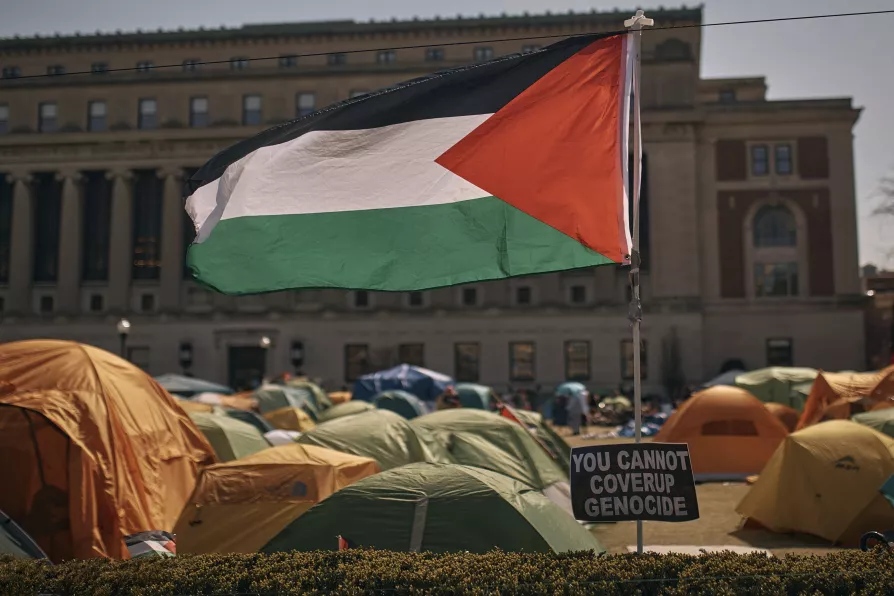As women dominate public services yet face pay gaps, unsafe workloads and rising misogyny, this International Women’s Day and TUC Women’s Conference must be a rallying point, says ANDREA EGAN

 The Palestinian flag flies over the protest camp on the lawn of Columbia, one of the most prestigious educational institutions in the US. Hundreds of encampments have been established on campuses across the world, calling for a ceasefire and, in many cases, financial disclosure and divestment from all companies tied to Israel from their universities.
The Palestinian flag flies over the protest camp on the lawn of Columbia, one of the most prestigious educational institutions in the US. Hundreds of encampments have been established on campuses across the world, calling for a ceasefire and, in many cases, financial disclosure and divestment from all companies tied to Israel from their universities.
IT was inevitable that global North governments’ full-throated support for Israel’s genocide against Palestinians would result in furious retribution from their citizenry.
That this retribution began in the US is also not a surprise, given the ongoing cycle of protests that, since October 2023, have contested the US government’s blank cheque to the Israeli government. The US bankrolling of Israel’s extermination campaign against Palestinians includes over one hundred weapons shipments to Israel since October 7 and billions of dollars of aid.
For a long time now, young people in the US — as in other countries of the global North — have felt the demise of promise from their society. Permanent precarious work awaits them, even those with higher degrees, and a more precious hold on morality has developed within them due to their own experiments to become better humans in the world.
Cruelties of austerity and of patriarchal norms have forced them to turn against their ruling classes. They want something better. The assault against Palestinians has spurred a rupture. How much further these young people will go is yet to be seen.
Across the US, students have built encampments on over a hundred university campuses, including the country’s most prestigious institutions such as Columbia, Massachusetts Institute of Technology, Stanford, Emory, Washington University in St Louis, Vanderbilt, and Yale.

Almost half of universities face deficits, merger mania is taking hold, and massive fee hikes that will lock out working-class students are on the horizon, write RUBEN BRETT, PAUL WHITEHOUSE and DAN GRACE













